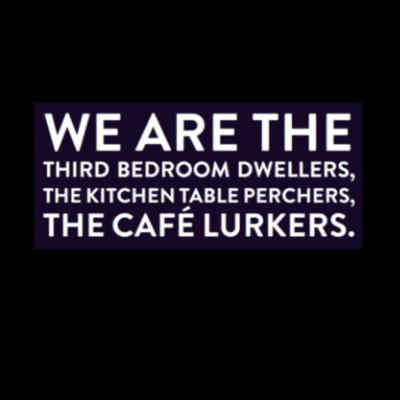I wrote two CVs last month. One for a 13-year-old wannabe checkout assistant and another for a 50-year-old retail executive. It may just be the last CV either of them has, and the last one I ever write.
We’ve just been through the rigorous process of judging our first ever Flying Solo Awards. (Congratulations to our short-list of awesome finalists and category winners!)
While assessing all the applications, it struck me that what other people said about the entrants held so much more weight in my mind than what the business owners said themselves.
It’s not that I didn’t believe what they’d written in their entry. I just attributed significantly more weight and credibility to the third party endorsements. Content such as customer testimonials, online ratings, independent reviews and tangible case studies ultimately determined who stood out above the rest.
While our research shows that personal word-of-mouth remains the strongest source of new business for most soloists (84%), once you move outside this personal one-to-one sphere, your business reputation essentially boils down to what people can dig up about you online. As a soloist, your website may be the closest thing you have to a traditional CV, but everything posted online will be fair game for scrutiny.
The ideal of personal branding or reputation management can be polarising. Outspoken blogger James Altucher reckons it is the work of the devil:
“When I hear the words ‘personal brand’ I think someone is going to lie to me and then try to take all of my money. Personal branding, I guess, is descended from the mockery called corporate branding … the idea that your career, your mind, your body, everything that makes up the superficial ‘you’ can be packaged up into a brand just like Coke …”
His personal brand, which he would no doubt deny having, is brutally honest and authentic as he reveals his every flaw in sometimes painful detail. While refreshing, it’s not going to work for many of us.
However, when we get too polished and self-promotional, personal branding can start to sound like this:
“Meet Crocks: Australia’s #1 bloke. With two multi-award winning model children, sparkling wit, harder than rock hard abs and a flawlessly gorgeous wife who can knit and lay a paver while turning the steak only once, Crocks is truly one of the world’s leading integrated males.
With loin-quiveringly good looks, forearms like baby seals and boyish charm, he is Ringleader of the rugby league touring team, Media Mogul and King of the Kids all rolled into one innovative package.”
On balance I think Jeff Bezos, Founder of Amazon.com, sums it up perfectly.
“Personal brand is what people say about you when you leave the room.”
It’s not something we get to formulate. Rather, it’s something people will decide about us for themselves based on the evidence they find. In an ideal world, it would be a perfect match with the best version of your true self.
Whether you love the idea or hate it, the reality is that you have a personal brand online already and it is either working for you or against you. Give me your name, business name and a few minutes on Google and I’ll form an opinion, good or bad, right or wrong, informed, uninformed or misinformed.
Your résumé is already ‘out there’ as a blurry digital footprint, so you can choose to ignore it, or you can take control of it.
The good news is that it’s not hard to get on top of. In her recent Flying Solo article I didn’t like what Google was saying about me so I fixed it, Kathy Wilson outlined five steps to take control of your online reputation. I loved her adaption of Dr Who wisdom:
“We’re all stories in the end…make sure Google tells your story your way.”
So, what does the Internet say about you when you leave the room? Do you know?



